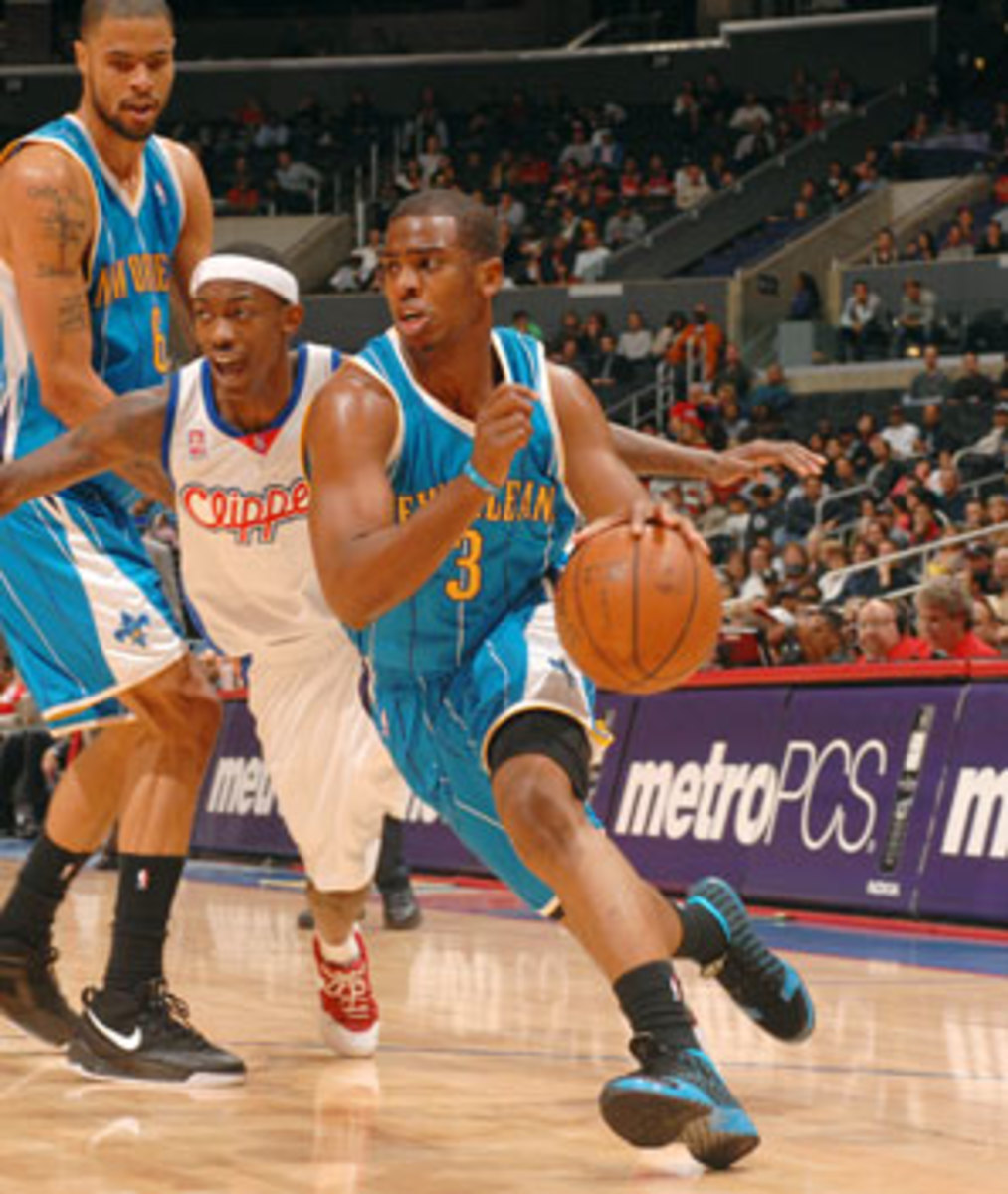Hornets trapped by own doings


Talk to them, and they say all the right things: We're going to be OK. We have the pieces we need. We're still contenders. We just need to be more consistent.
Watch them, however, and the New Orleans Hornets (24-20) tell a different story. Two seasons after posting a franchise-best 56-26 record -- a season that seemed the harbinger of future title contention -- they've regressed. And now, they are stuck.
This isn't unusual, of course, to see an NBA team acquire a star or two thanks to the lottery, improve from terrible to good, excite its fans, and then falter just when it borders on contendership. For current references, see Toronto and Chicago.
Two seasons ago, the Hornets improved their record from 39 to 56 wins and took San Antonio to seven games in a second-round playoff series.
Last season, they lost six of their last eight games to slip to 49 wins, then suffered a first-round pratfall by losing to Denver in five games -- with the four losses coming by an average of 31 points.
"They've taken a step back," one NBA scout said of the Hornets. "They're in a weird spot right now."
How did they get to this point? Easy. a series of poor drafts, some questionable free-agent signings and an uncertain coaching situation.
The Hornets hit on three consecutive draft picks from 2003-2005, taking DavidWest, J.R. Smith and Chris Paul. Paul is a superstar, West is a star and Smith was traded to Chicago as part of a deal that brought Tyson Chandler. Since then, however, New Orleans has mostly swung and missed, passing over names like Rajon Rondo and Carl Landry for guys like Cedric Simmons (now a fourth-year D-League vet) and Julian Wright (who's averaging 3.2 points in his third season).
The Hornets' management complicated matters by overspending in the free-agent market. Perhaps the biggest failed investment was in post-prime PejaStojakovic, 32, who signed a five-year, $64 million contract in 2006 and has failed to live up to expectations. The Hornets' second-highest-paid player and three-time All-Star missed 93 games in 2007 after undergoing back surgery and has yet to return to form, recording his lowest scoring average (11.4 points per game) since his rookie season in 1998-99.
Now, like compulsive shoppers with maxed-out credit cards, the Hornets have had to shift into cost-cutting mode. On Monday, they traded starting guard Devin Brown to Chicago for backup center Aaron Gray, whose career in the NBA may not last much longer. The payout? A measly $100,000 in savings for New Orleans, and the loss of a guy who started 36 of 39 games for one who's played a grand total of 50 minutes this entire season and is averaging 2.3 points.
And on Tuesday, New Orleans continued its streak of cost-cutting moves by dealing reserve Bobby Brown to the Clippers for a conditional second-round draft pick. The move brought the Hornets under the luxury tax threshold but did little, if anything, to improve their roster. Their fixation on the bottom line motivated them to trade Chandler to Charlotte for Emeka Okafor over the summer. While they gained immediate savings in the deal, they took on three more years in salary commitment with Okafor's contract. That's left them with no true center to get easy baskets on lobs from Paul, or defend other premier post players.
And to top it all off, New Orleans' coaching situation is equally muddled. Jeff Bower, who had built the team into its 56-win creation as a general manager, replaced former Coach of the Year Byron Scott earlier this season. The Hornets have improved from their 3-6 record at the time Bower took over, but nobody expects him to remain on the bench for long.
"We're continuing to try to build and get back to that [56-win] level, but we have to take it step by step," he said. "Right now we have to continue to improve as a team ... get wins, you know, one at a time. Get ourselves into playoff position, you know, and then keep working our way to it step by step."
And what are the steps?
"The big thing is, as the season takes place, to prove our place so that we can consistently compete against teams at the top of the conference," Bower said. "And we've done that. We have wins against Phoenix, Atlanta and we've played very well against teams in our division. We have to continue to develop a consistency to play that way on a nightly basis."
Vague, yes, but what else can he say?
"We missed on too many drafts, so now we're screwed."
"Our cheapskate ownership needs to stop worrying about silly taxes and get us some players."
Not likely.
The Hornets' foundation is Paul, who nailed the game-winning jumper at Portland on Monday and whose averaging 20.0 points, a league-leading 11.2 assists and 2.25 steals (second best in the league) while shooting 41.7 from three-point range. New Orleans may not find a better point guard or a more optimistic one about his team's future.
"We have everything we need," Paul said. "We have the pieces; we just have to put it together on a nightly basis."
Nice words, but debatable. The Hornets still aren't putting it together on a nightly basis, and they probably have no chance of rebuilding until the summer of 2011 when the contracts of Stojakovic, DariusSongaila and the injured Morris Peterson come off the books
Until then they're likely stuck in their "weird spot." The one with no exit in sight.
